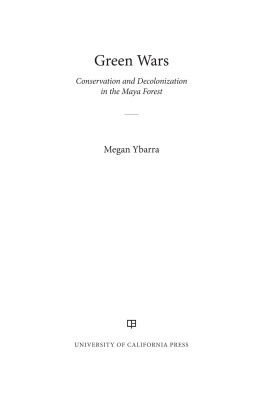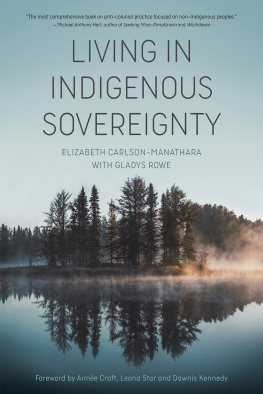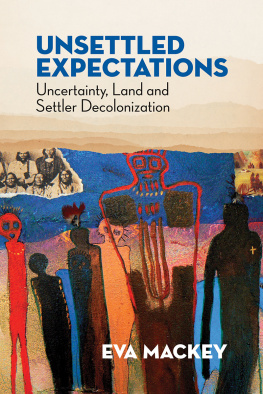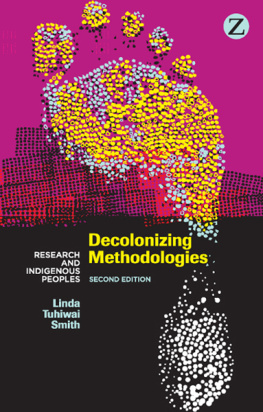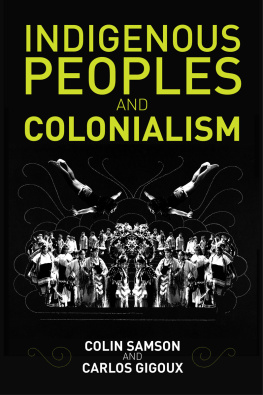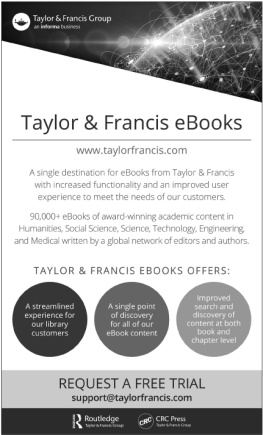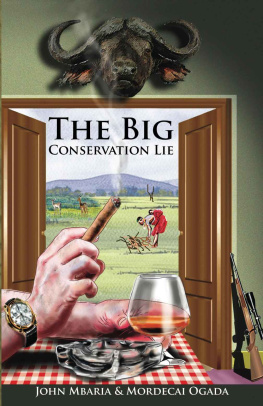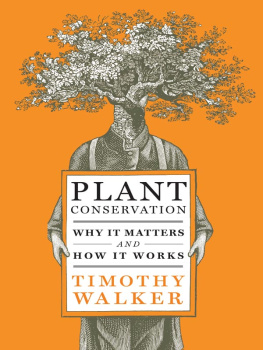Green Wars
Green Wars
Conservation and Decolonization
in the Maya Forest

Megan Ybarra

UNIVERSITY OF CALIFORNIA PRESS
University of California Press, one of the most distinguished university presses in the United States, enriches lives around the world by advancing scholarship in the humanities, social sciences, and natural sciences. Its activities are supported by the UC Press Foundation and by philanthropic contributions from individuals and institutions. For more information, visit www.ucpress.edu.
University of California Press
Oakland, California
2018 by Megan Ybarra
Library of Congress Cataloging-in-Publication Data
Names: Ybarra, Megan, author.
Title: Green wars : conservation and decolonization in the Maya forest / Megan Ybarra.
Description: Oakland, California : University of California Press, [2018] | Includes bibliographical references and index. | Description based on print version record and CIP data provided by publisher; resource not viewed.
Identifiers: LCCN 2017031822 (print) | LCCN 2017034385 (ebook) | ISBN 9780520968035 (ebook) | ISBN 9780520295162 (cloth : alk. paper) | ISBN 9780520295186 (pbk. : alk. paper)
Subjects: LCSH: Kekchi IndiansLand tenureMaya Forest. | Kekchi IndiansLegal status, laws, etc.Maya Forest. | Q.eqchi. (Community : North)Government relationsHistory. | DecolonizationMaya Forest. | Maya ForestConservation. | Natural resourcesMaya ForestManagement.
Classification: LCC F 1465.2. K 5 (ebook) | LCC F 1465.2. K 5 Y 33 2018 (print) | DDC 972.82/0049742dc23
LC record available at https://lccn.loc.gov/2017031822
Manufactured in the United States of America
26 25 24 23 22 21 20 19 18
10 9 8 7 6 5 4 3 2 1
For my father, who taught me to never give up
CONTENTS
ACKNOWLEDGMENTS
When I was evacuated as the army rolled into my field site on my first day of a case study, I immediately called Russell, my media naranja. Russell knows enough about rural Guatemala and bureaucracies that he is the first person I ask for advice when I puzzle over the passive-aggressive politics of a meeting or gauge my own safety to ask uncomfortable questions in tense situations. Russell is the person who offers to bail me out of jail if I get arrested in a direct action, who doesnt complain but does carefully stack up the books strewn throughout the house into a towering pile on my desk, and who takes me on sunshine-filled outings to remind me that there is more to life than work. In more ways than I can count, this book is also his achievement.
My intellectual trajectory was shaped by the (then) new Latin American and Caribbean Studies program at New York University, where professors including Ada Ferrer and Mark Healey pushed me beyond Spanish-centric thinking and pointed toward other histories and future revolutions. At UC Berkeley, Keith Gilless was my touchstone who shifted seamlessly from Bayesian analysis to feminist epistemologies. I benefited from the time and intellectual engagement of Louise Fortmann, Jake Kosek, Don Moore, Nancy Peluso, and Isha Ray. Although he had already graduated, Aaron Bobrow-Strain was generous with important advice on job interviews and books proposals as well as reading drafts. I am also grateful to my fellow graduate students, who slogged through drafts that by all rights I should not have inflicted on them and taught me much about their own work along the way: Ivn Arenas, Mez Baker, Jennifer Casolo, Catherine Corson, Juan Herrera, Tracey Osborne, Alice Kelly Pennaz (and Chufi), Mark Philbrick, Noer Fauzi Rachman, Jade Sasser, and Bhavna Shamasunder.
At Willamette University, I learned how to teach and how to take care of myself in a context of institutional racism. I learned from Nacho Crdova, although I still think of how much he had left to teach (and I to learn) after his untimely death. A few key colleagues taught me how to teach and how to hold my tongue (even though I still dont do it much!). They held me up when I was fallingmy sincere gratitude to Mat Barreiro, Melissa Buis Michaux, and Jonneke Koomen. Above all, students at Willamette were a powerful reminder that the insular intellectual standards of the ivory tower are brittle and will crumble if they do not transform. I laughed, cried, and transformed thanks to Noor Amr, Elizabeth Calixtro, Octaviano Chavarn, Victor Garca, Genora Givens, Mara Hernndez-Segoviano, Samantha Martinez, Delia Olmos-Garca, Isa Pea, Juan Ramos, Luz Reyna, Beatriz Sandoval, Martha Sonato, Taylor Wells, and Clarise Young.
There would be no book were it not for the support of colleagues at the University of Washington. Thanks to Eddy Sandoval for taking on the task of being my first graduate advisee and reminding me that transforming geography happens seminar by seminar, paper by paper. You deserve more, and we will forge it togetherI promise. I have enjoyed working with folks in Gender, Women, and Sexuality Studies and Latin American and Caribbean Studies departments throughout all three campuses. Among them, I thank Sarah Dowling, Ben Gardner, Maria Elena Garcia, Tony Lucero, Chandan Reddy, and Ileana Rodrguez-Silva for their helpful reads of parts of the manuscript. My greatest thanks go to my committee of no, who guided me on a path toward professional sanity: Sarah Elwood-Faustino, Lucy Jarosz, and Vicky Lawson. I am grateful for their support when I considered giving up on this book, their helpful read of too many drafts to count, and their advice on navigating the unsteady waters of academia.
I enjoyed institutional assistance and/or particularly helpful interviews from multiple park administrators and the National Council of Protected Areas (Consejo Nacional de Areas Protegidas, CONAP) offices, ADICI-Wakliqoo, APROBA-SANK, and the the National Coordinator of Peasant Organizations (Coordinadora Nacional de Organizaciones Campesinas); ACDIP (formerly COCIP-Petn); CONGCOOP-IDEAR; FONTIERRAS (the Guatemalan Land Fund); Fundacin Lachu; Fundacin Talita Kumi; Mercy Corps; the Registro de Informacin Catastral; Procuradura de Derechos Humanos in Alta Verapaz and Petn; ProPetn; Secretara de Asuntos Agrarios in Guatemala City; Universidad de Rafael Landvar in Alta Verapaz; and Veterinarios Sin Fronteras. Within these institutions, a few people were particularly helpful in organizing my research: Juliana Aju, Alberto Alonso Fradejas, Guicho Coy, Silvel Elas, Byron Garoz, Klemen Gamboa, Mario Lpez Barrientos, Peter Marchetti, and Helmer Velsquez. In 2007, I enjoyed research assistance in conducting household surveys from Gloria Sucely Pop Cucul, Aura Violeta Caal Jucub, and Olga Yoland Maqun. In 2009, despite flooding, famine, and robanio scares, Oscar Ren Obando Samos led a team of intrepid surveyors throughout Petn: Nadia Marianela Canek Mrquez, Leticia Iracema Carabeo Paz, Amanda Caras Gonzlez, Melyn Emrita Argentina Garca Castellanos, Francisco Mariano Obando Requena, Manuel de Jess Ochaeta Caldern, Ronal Francisco Roque Esquivel, and Anita del Carmen Snchez Castellanos.
I had the opportunity to complement my fieldwork with a diverse collection of archival and library sources. At UC Berkeley, the Earth Sciences and Map Library offered a cornucopia of maps (including the map in ), and the Bancroft Library held a wealth of regional historical documents. In Guatemala, I gratefully acknowledge the following institutions for their access and assistance: Ak Kutans library; Archivo General de Centro Amrica; Biblioteca Nacional; Cobns public library; Centro de Investigaciones Regionales de Mesoamricas archives and library; the CONAP headquarters library; Committee for Peasant Unity (Comit de Unidad Campesina) files; the Cooperacin Espaola library; FONTIERRAS in Guatemala, Chisec, Ixcn, Cobn, and Petn; the National Statistics Institute (Instituto Nacional de Estadstica); Inforpress Centroamericana Coleccin 30 Aos; the Ministry of Agriculture of Guatemala (Ministerio de Agricultura de Guatemala); ProPetns information center; the General Property Register (Registro General de Propiedad); the Presidential Commission for the Resolution of Land Conflicts (Comisin Presidencial para la Resolucin de Conflictos de Tierra); the Secretary of Planning and Programming of the Presidency (Secretara de Planificacin y Programacin de la Presidencia) archives; and the University of Rafael Landvar Cobn library. All translations from the Spanish are mine, as is responsibility for any resulting errors.
Next page
